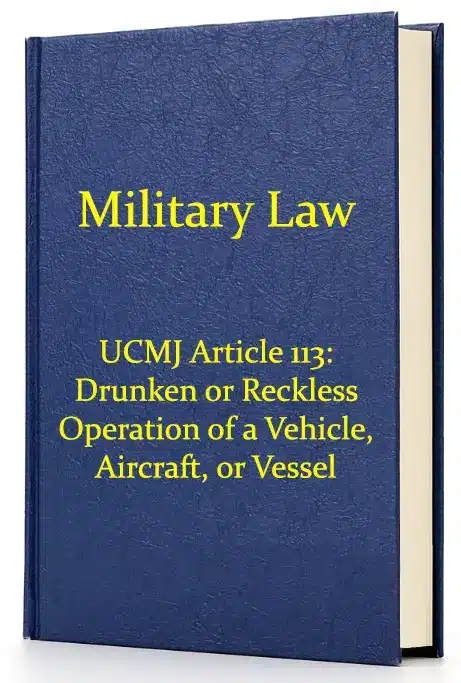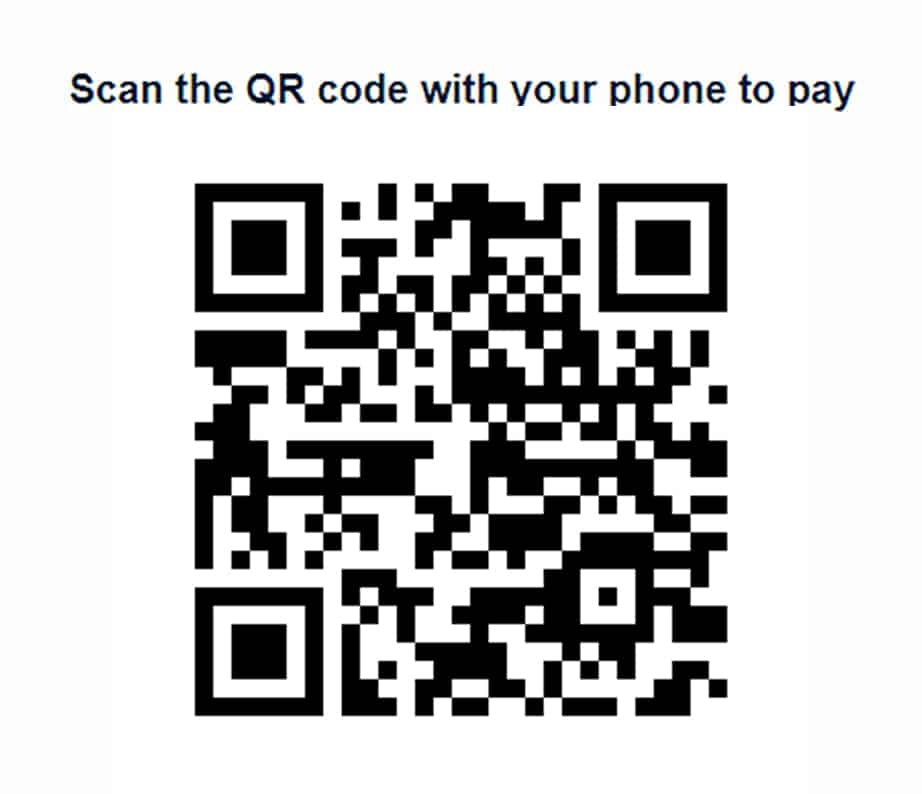The MCM specifies a service member may be subject to prosecution due to a violation of Article 113 if they:
-
operate or physically control any vehicle, aircraft, or vessel recklessly or wantonly or while impaired by a substance; or
-
operate or is in actual physical control of any vehicle, aircraft, or vessel while drunk or when the alcohol concentration in the person’s blood or breath is equal to or exceeds the applicable limit.
For violations of Article 113 regarding the operation or control of a vehicle, aircraft, or vessel in the United States, the blood alcohol limit is the lesser of the blood alcohol content limit of the state in which the infraction occurred or an alcohol concentration of 0.08 grams of alcohol per 100 milliliters of blood and concerning alcohol concentration in a person’s breath is 0.08 grams of alcohol per 210 liters of breath, as shown by chemical analysis. By regulation, the Secretary of Defense may prescribe limits that are lower than the limits specified if such lower limits are based on scientific developments, as reflected in Federal law of general applicability. Suppose the military installation at which the transgression occurred is located in more than one state, and those states have different blood alcohol content limits. In that case, the Secretary of Defense may select one blood alcohol content limit and apply it uniformly to the installation.
For violations of Article 113 regarding the operation or control of a vehicle, aircraft, or vessel outside the United States, the blood alcohol limit is an alcohol concentration of 0.08 grams of alcohol per 100 milliliters of blood, and concerning alcohol concentration in a person’s breath is 0.08 grams of alcohol per 210 liters of breath, as shown by chemical analysis. By regulation, the Secretary of Defense may prescribe limits that are lower than the limits specified if such lower limits are based on scientific developments, as reflected in Federal law of general applicability.
To be convicted of an Article 113 violation, the prosecution must demonstrate;
-
the accused was operating or in physical control of a vehicle, aircraft, or vessel; and
-
while operating or in physical control of a vehicle, aircraft, or vessel, the accused
-
did so wantonly or recklessly or
-
was drunk or impaired; or
-
the alcohol concentration in the accused’s blood or breath exceeded the applicable limit.
-
If the violation resulted in a person’s injury, the caveat “the accused thereby caused the vehicle, aircraft, or vessel to injure a person” must be added.
Understanding Article 113 (Drunken or Reckless Operation of a Vehicle, Aircraft, or Vessel) of the UCMJ
For Article 113, drunk and impaired refer to any intoxication that is sufficient to impair the mental or physical faculties of the service member. Drunk is used to specify alcohol intoxication, while impaired refers to intoxication by a controlled substance.
Physical control and actual physical control are synonymous and describe one’s capability and power to dominate, direct, or regulate the vehicle, vessel, or aircraft, either in person or through the agency of another, regardless of whether such vehicle, plane, or ship is operated. Operating a vehicle, aircraft, or vessel includes driving or guiding a vehicle, aircraft, or vessel. At the same time, it is in motion, either in person or through the agency of another, but also setting its motive power in action or manipulating its controls to cause the particular vehicle, aircraft, or vessel to move.
Reckless operation or physical control of a vehicle, vessel, or aircraft is apparent when the accused exhibits a culpable disregard of foreseeable consequences to others from the act or omission involved. It is operating or physically controlling a vehicle, vessel, or aircraft with such a high degree of negligence that if death were caused, the accused would have committed involuntary manslaughter, at least. Wanton includes “reckless,” but in describing the operation or physical control of a vehicle, vessel, or aircraft, wanton may define willfulness or a disregard of probable consequences and thus describe a more aggravated offense.
To establish causation, the accused’s drunken or reckless driving must be a proximate cause of injury for the accused to be guilty of drunken or careless driving resulting in personal injury. Their actions may not solely cause the injury but rather serve as a contributing factor.
Maximum Possible Punishment Article 113 Violation
Service members convicted of an Article 113 violation face the maximum possible punishment of a dishonorable discharge, forfeiture of all pay and allowances, and confinement for 18 months if the incident results in personal injury.
If the incident did not result in personal injury, the maximum possible punishment includes a bad-conduct discharge, forfeiture of all pay and allowances, and six months of confinement.
How do you defend against Article 113 Drunken or Reckless Operation of a Vehicle, Aircraft, or Vessel charges?
When facing the combined resources of the military and the current cultural climate, you need to be prepared to defend your career and your freedom. Crisp and Associates, LLC has a team of experienced trial attorneys who have won these cases. This team includes the firm’s founder, Jonathan Crisp, a highly respected former Army JAG with over 23 years of experience in military law and a sought-after speaker and lecturer on martial law. Donald Gordon has litigated cases before the Discharge Review Board, the Board for Correction of Military Records, and the Board for Correction of Naval Records regarding various matters and a diverse background of clients.
If you or someone you know is facing Article 113 charges for Drunken or Reckless Operation of a Vehicle, Aircraft, or Vessel, you should speak with a Military defense attorney immediately.


